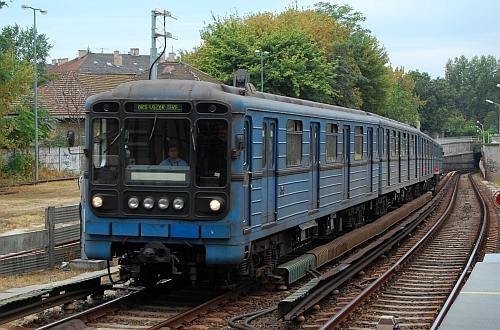Of 22 parties that submitted expressions of interest to BKV, five companies were accepted into the discussion phase of which four submitted initial bids. Of these, Škoda Transportation and CAF did not submit final binding bids, while Skinest Rail, was disqualified because it had not submitted certain documents and failed to meet compulsory technical criteria.
This left only Metrowagonmash, successor of the original supplier of the trains Mitishinsky, with a valid bid. On July 8 BKV announced that it had accepted Metrowagonmash's €219.2m bid, but this was subsequently challenged by Skinest Rail.
Rolling stock performance has become an increasing concern on Line 3 and according to BKV the fleet has suffered 4048 in-service technical incidents over the last four years, and smoke was emitted from vehicles on 36 of these occasions. BKV says Line 3 could be closed by the authorities at any time and calculates the cost to the city's economy of replacing the line with buses could reach Forints 23bn ($US 81m) per month. BKV even wrote to Skinest Rail asking the company to withdraw its objection.
The price offered by Metrowagonmash included equipping the cars with completely new electronic control, automatic fire detection and sprinkler systems, connecting gangways, emergency doors, regenerative braking, forced air ventilation, modern interiors, CCTV, multi-purpose areas, and modernisation of automatic control equipment on the line. The deal also included an option for refurbishing a further 42 vehicles, which would be exercised by BKV if a proposed extension of Line 3 goes ahead.
The upgrade will extend the life of the trains by 25 years and reduce energy consumption by 20%.

